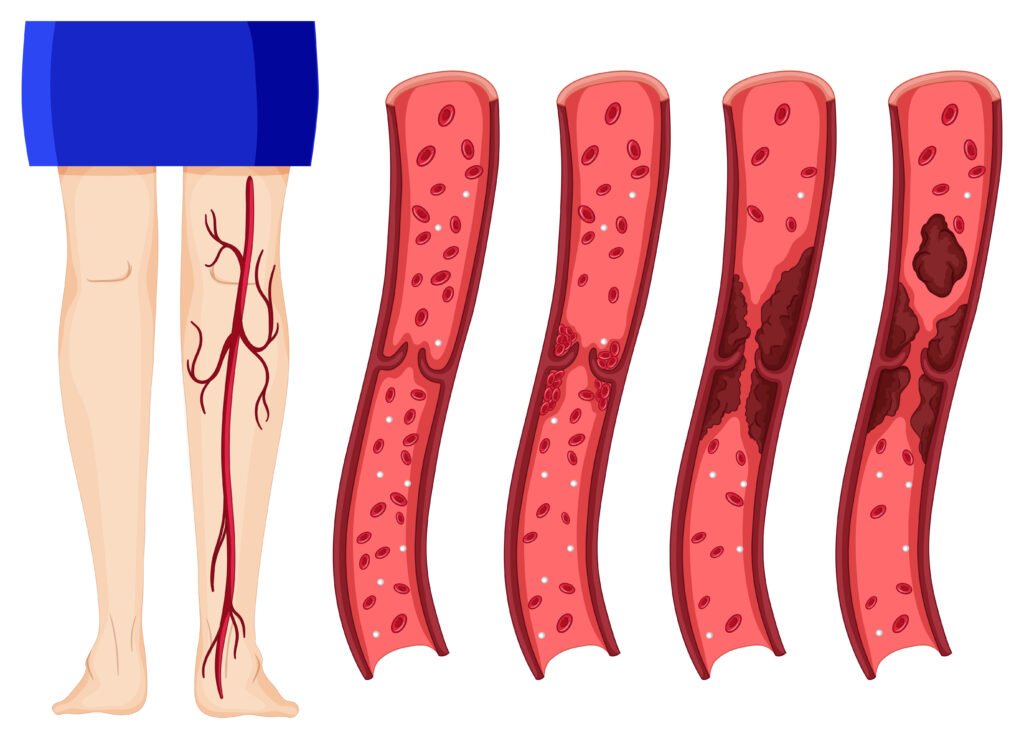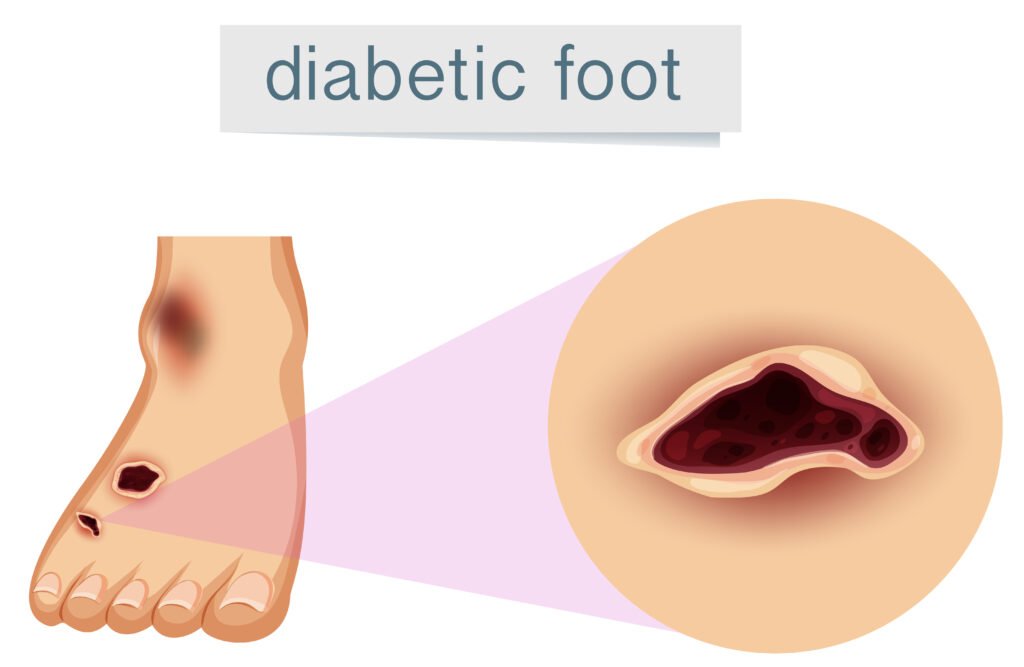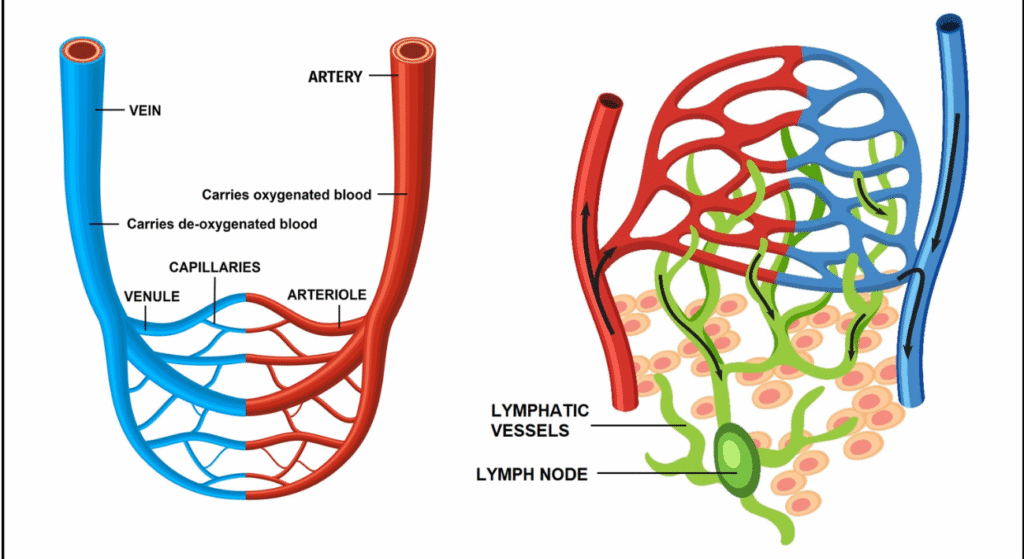
What is Vascular Surgery?
Vascular surgery deals with the issues of the circulatory system. These include arteries, veins, and lymphatic systems, which are essential for proper blood circulation.
What Do Vascular Surgeons Do?
Vascular surgeons are specialists trained to diagnose and treat vascular diseases using various techniques. These include both open and minimally invasive endovascular procedures.
Vascular surgeons in India undergo rigorous training for about 13 years after the 12th standard. After completing an MBBS degree, doctors pursue a 3-year post-graduate residency program in general surgery, followed by a 3-year super-speciality in vascular surgery.
Common Conditions Treated by Vascular Surgeons
Here are the most common conditions that vascular surgeons treat:
- Varicose Veins: Twisted, enlarged veins in the leg region that cause discomfort.
- Diabetic Foot:Painful ulcers in the foot region of diabetic patients.
- Peripheral Artery Disease (PAD): Narrowed arteries reduce blood flow to the limbs.
- Deep Vein Thrombosis (DVT): Blood clots form in deep veins, often in the legs.
- Carotid Artery Diseases: Narrowing or plaque deposition in neck arteries, increasing stroke risk.
- Aneurysms: Dangerous bulging of arteries that can rupture.
- AV Fistula: Artery-vein (AV) connection for dialysis access.
If left untreated, these conditions can lead to severe health issues, impacting daily life and overall health.

Vascular and Endovascular Surgery: What’s the Difference?
Both terms refer to two primary modes of surgical technique, but there’s a key difference.
Vascular Surgery involves traditional “open” surgeries where the surgeon makes an incision to access blood vessels.
Endovascular Surgery is less invasive, often involving only small incisions, and uses catheter-based techniques to treat issues from inside the vessels.
Vascular surgeons are skilled at performing both types of procedures, depending on what’s best and safe for the patient.
How is Vascular Surgery Different from Cardiothoracic Surgery?
Broadly, vascular surgery focuses on diseases of the peripheral blood vessels outside of the heart and brain, such as vessels of the pelvis, abdomen and limbs. In contrast, cardiothoracic surgery involves procedures of the heart and the chest region, including surgeries for heart disease, heart valves, and lung conditions.
While both specialities deal with the cardiovascular system, their areas of expertise and the types of surgeries performed are distinct. Additionally, blood vessels in the brain are managed by neurosurgeons.
Why is Vascular Surgery Important?
Vascular surgery addresses blood flow problems that are essential to overall health. When blood circulation is blocked, organs and limbs gradually die, leading to a condition known as gangrene, which causes a blackish discolouration.
Early intervention by a vascular surgeon can prevent serious complications like stroke or limb amputation.
FAQs
What are common symptoms that require vascular surgery?
Symptoms that may indicate vascular issues include:
- Pain in the limbs
- Varicose veins
- Tingling or numbness in the limbs
Additionally, muscle pain in the legs or intermittent claudication, triggered by walking and relieved by rest, is another key sign. Consult a vascular surgeon if you notice these symptoms.
How is peripheral vascular surgery different from general surgery?
Peripheral vascular surgeries specifically target blood vessels in the limbs, focusing on improving blood flow, unlike general surgery, which includes a wider range of procedures. Typically, a vascular surgeon refers specifically to a peripheral vascular surgeon.
Can vascular and endovascular surgery treat the same conditions?
Yes, vascular and endovascular surgery can often treat the same conditions. Endovascular surgery is a less invasive approach using catheters and small incisions, while traditional vascular surgery may involve larger incisions. The choice of method depends on the patient’s symptoms, condition and overall health.
Take Home Message
Vascular surgery is a life-saving field that addresses critical blood flow issues. Vascular surgeons use advanced techniques to ensure optimum blood flow. If you experience symptoms, consult a vascular surgeon to discuss your options. Early treatment can lead to a healthier, more active life.


